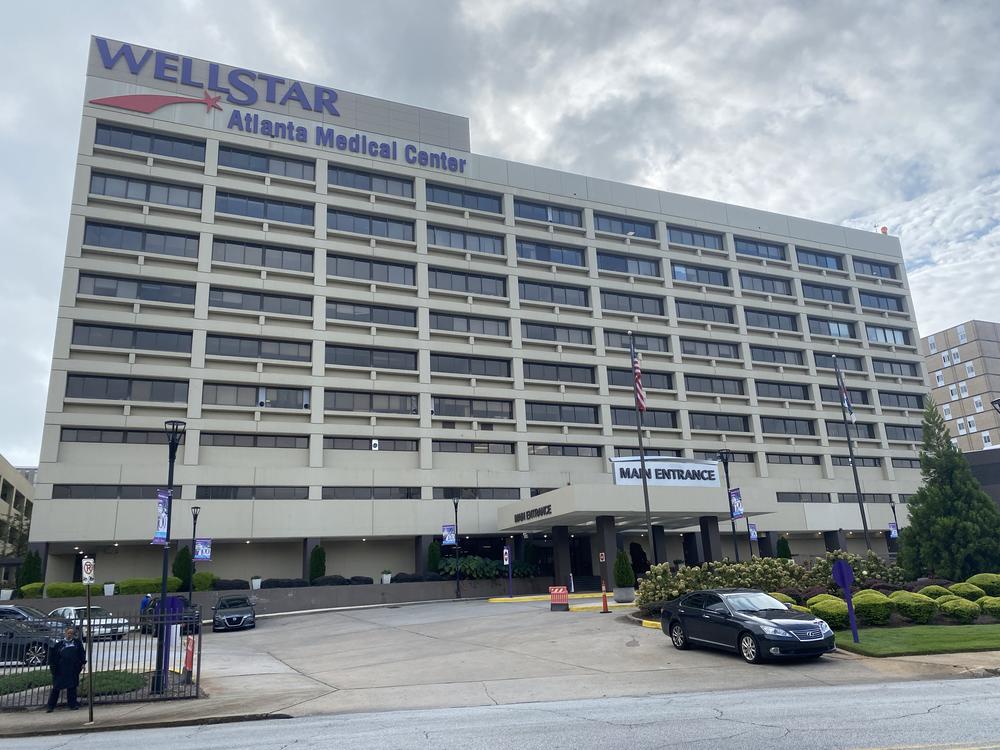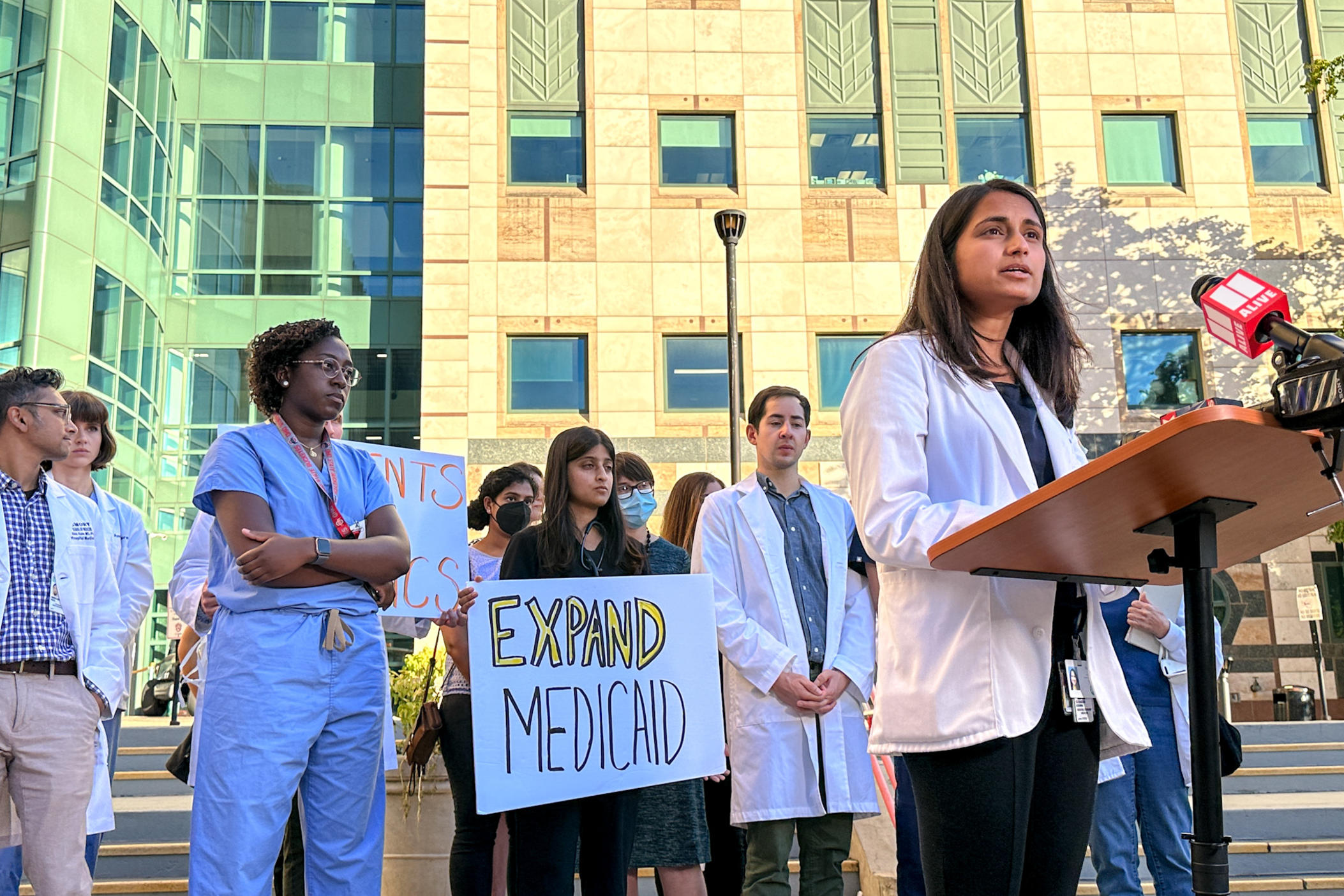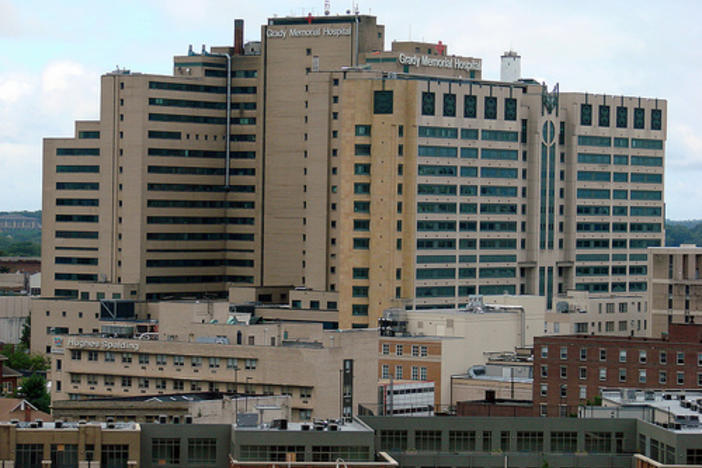
Caption
Atlanta Medical Center has been a community fixture in the Old Fourth Ward neighborhood for decades. Wellstar Health System, the nonprofit that owns the facility, plans to shutter it in November. It's the latest change in a rapidly gentrifying neighborhood and another severe blow to the Atlanta - area health care landscape.
Credit: Sam Whitehead/KHN





